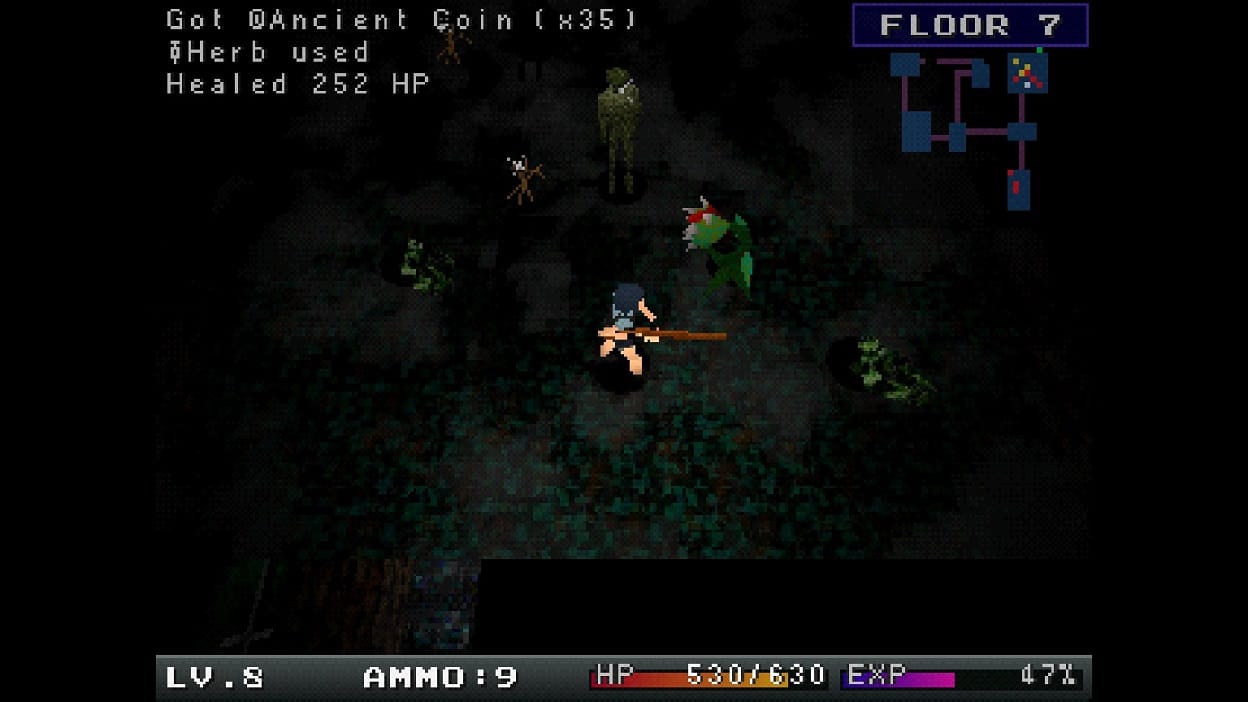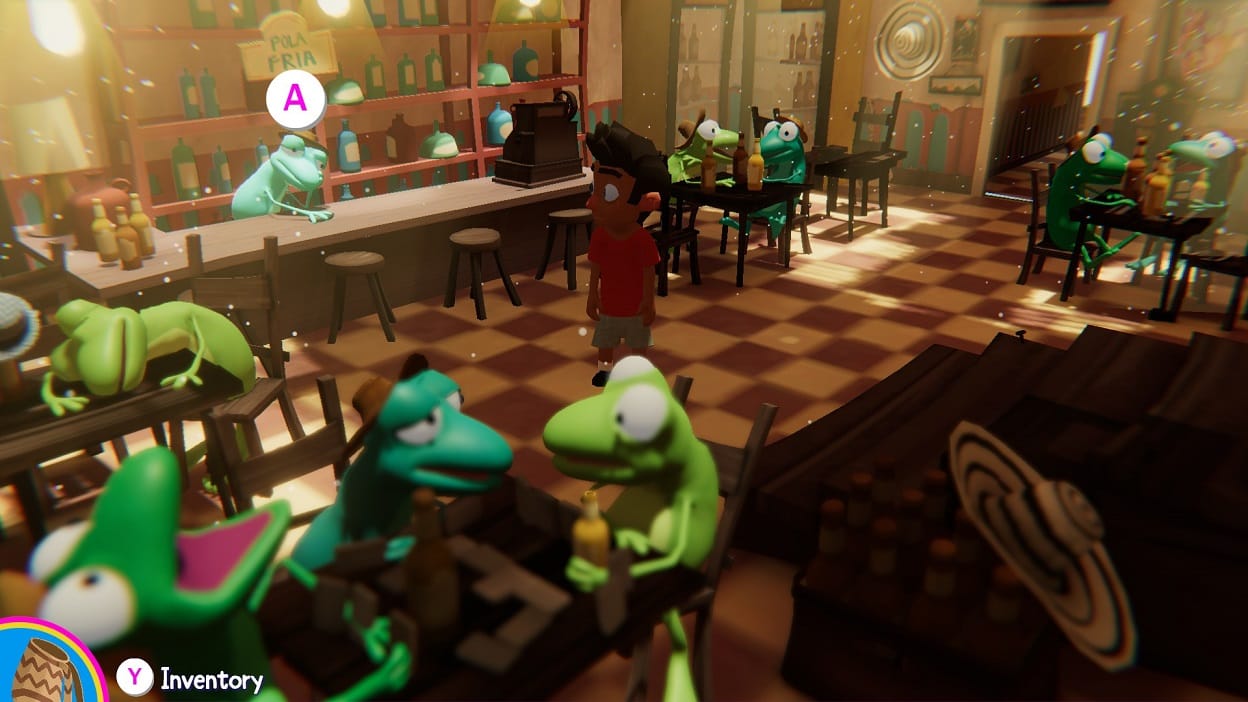Indie Monthly: October 2025
A 90s-era horror RPG and a magical realism adventure game populated by frogs are your indie delights for October

It's a bit of a slow month here at Indie Monthly - just two games on offer this time. There's a good reason for the sparseness, though. I've been putting all my effort into finishing up this year's State of Indie report, and it's shaped up to be a real winner. More respondents than ever, lots of information about the trajectory of the industry, plus a look back at the assumptions of previous years.
Until then, please enjoy October's offerings, a survival horror-flavored roguelike and a magical realism-themed adventure game.

House of Necrosis
House of Necrosis is a dungeon-crawling RPG themed after 90s-era survival horror games, most notably Resident Evil. It's a real throwback that's more accessible than such games tend to be while still providing a significant challenge.
The player takes control of a lone agent exploring a suspiciously familiar forest-bound mansion, which has become overrun with deformed creatures and the living dead. It turns out that even death offers no escape from the mansion, as the protagonist awakens again within its walls, no matter what grim fate befalls her. Her savior - a strange merchant with an annoying laugh - can only tell her that the sole way out is to go deeper and discover what lies at the heart of the mansion.
House of Necrosis is a true roguelike RPG. More than mere procedural generation, it features mechanics, visual layouts, and even a control scheme similar to early Mystery Dungeon games such as Torneko or Shiren the Wanderer. Gameplay is turn-based, with everyone acting simultaneously, though the player's actions usually get priority. Attacking, taking a step, or throwing an object takes a turn, while turning in place does not.
On most floors, the goal is to find the exit and escape while fighting off enemies. Certain floors house a boss monster that must be killed to open the exit, but others allow a quick sprint for the door. Of course, as with any good dungeon crawler, the fast approach means giving up experience and gear. This includes melee weapons, firearms, and jackets (all of which can carry various bonuses), anonymous potions, throwable hexes, and a range of navigation-enhancing consumables.

Unlike most similar games, this equipment is not necessarily lost after a run. Some items offer permanent run-to-run boons, such as spells that can be used once per run and pack upgrades that increase carrying capacity. Other items can be stored or retrieved from chests that appear in safe rooms after bosses or carried out by using a special escape item.
The ability to retain equipment is just one aspect that makes House of Necrosis more forgiving than most similar games. Traps are relatively rare, while healing items are abundant. There is no equipment durability, and only certain weapons and pieces of armor are at risk of breaking. Many items are unidentified, but there are easy ways to identify them, and they are seldom deadly to the player. All of this makes House of Necrosis a good entry point, though it's still a healthy challenge for more experienced players.
Overall, this is a top-notch roguelike with a satisfying, well-balanced campaign - and it gets extra points for its commitment to the PlayStation-era aesthetic.
House of Necrosis is available for PC via Steam. A copy was provided for this review.

SOPA - Tale of the Stolen Potato
Sopa is an adventure game set in an enchanted, magical-realism-inspired version of Latin America. Most of the appeal comes from the surrealism of the concept and the implications of the main character's actions.
Young Miho's grandmother has a simple job for him - go into the pantry and fetch a potato for the evening's soup. Miho doesn't expect to watch a giant frog steal the sack of potatoes and then disappear into a sprawling jungle located behind the shelves. With his grandmother skeptical about his claims, Miho's only option is to chase the frog thief into the jaws of danger - all for want of a single potato.
Sopa is a conventional adventure game with the occasional minigame or QTE thrown in for variety. The core puzzle-solving gameplay takes place across a handful of areas, all styled after places from the fiction and heritage of South America.

Both the puzzles and the minigames are relatively easy - there's some moon logic here and there, but there are also a lot of clues, and the signposting is good enough that anyone familiar with adventure games should be able to get through the story without getting stuck for too long. A typical player should expect the game to last 2-3 hours, depending on whether one opts to seek out achievements.
The story is fairly freewheeling, and much of it is merely implied. Miho's journey is simple enough, but there are a lot of details regarding his family, friends, and possible connections to other characters that are left as an exercise for the player. Don't expect a really tight narrative - this one's more about time and place than anything else.
Overall, Sopa is a respectable choice for adventure game fans, but it's going to appeal more to those who already have a taste for magical realism.
SOPA is available for PC via Steam. A copy was provided for this review.
That wraps up our look at the indie games that caught our attention in October! Keep your eyes peeled for the upcoming State of Indie article, and as always, be sure to come back each month for more of those sweet, sweet indie games you need to know about!
